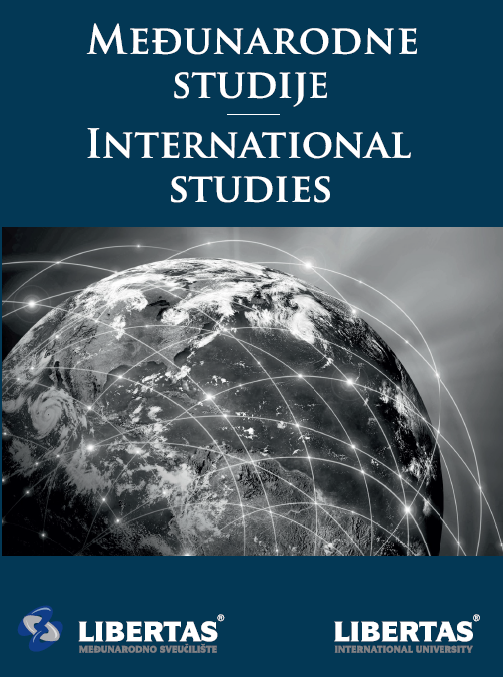Utjecaj njemačkoga pitanja na nastanak europskih integracija iz konstruktivističke perspektive Alexandera Wendta
The influence of the German question on the formation of European integrations from the constructivist perspective of Alexander Wendt
Author(s): Ljiljana Biškup MašanovićSubject(s): Politics / Political Sciences, Political history, Geopolitics
Published by: LIBERTAS MEĐUNARODNO SVEUČILIŠTE
Keywords: German issue; cold war; constructivism; Alexander Wendt; identity; interest;
Summary/Abstract: In this article, Alexander Wendt’s constructivist approach was used in order to explain the reasons for the formation of European integrations in regard to the unresolved German Question. The model of interaction between identities and interests was used in order to analyse the behaviour of two superpowers between 1945 and 1990, in relation to the following developments: the Cold War, European integrations, and German unification. The behaviour of two German states regarding their future unification was also observed. The state was used as the basic unit of analysis. As theoretical foundation, Wendt’s constructivist approach, which rests on Giddens’ theory of structuration, was used in order to explain duality of structure and agency in relation to reproduction or transformation of the (international) system. The assumption that the unresolved German Question not only accelerated but also conditioned the emergence of European integrations, was put under scrutiny. It was also analysed how the emergence of the policy of detente conditioned the changes in international relations during the observed period, particularly in regard to ideational factors such as the results of the Conference on European Security and Co operation, West German Ostpolitik, and the appearance of new ideas in the former Soviet Union, as well as their role in the unification of two German states in 1990.
Journal: MEĐUNARODNE STUDIJE
- Issue Year: 21/2021
- Issue No: 2
- Page Range: 63-87
- Page Count: 25
- Language: Croatian

